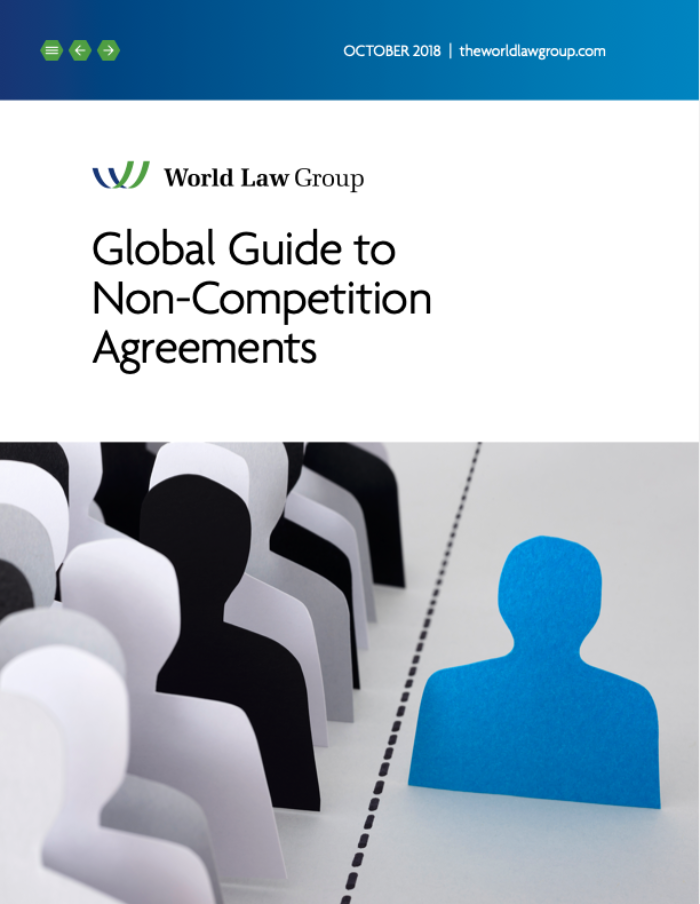Non-competition agreements can help a business protect its confidential information, trade secrets and customer relationships, and prevent unfair competition. However, whether such agreements can be enforced, and under what circumstances, vary significantly among jurisdictions. The aim of this publication is to have a dedicated resource on the enforceability of non-competition agreements, distilling the experience of numerous World Law Group (“WLG”) member firms into a single reference.We hope that this guide will be useful for those who have to deal with non-competition agreements in one of the jurisdictions covered. This guide focuses on the laws around the world as they currently stand at the date of publication. However, we cannot exclude some changes in the laws to a certain extent in this area. Please visit this page where we hope to post updates as they become available, and feel free to consult other reference sources.We wish you a good read!

Download the guide
Showing 103 to 105 of 132


